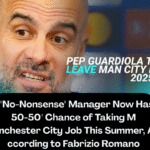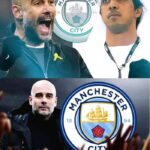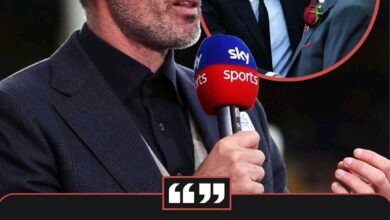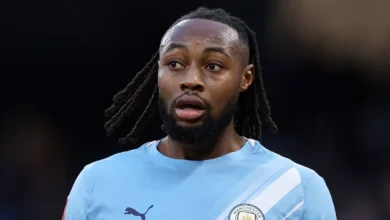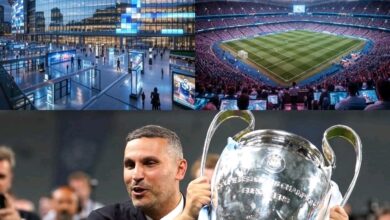Alex Ferguson revealed the reason why Liverpool is suffering
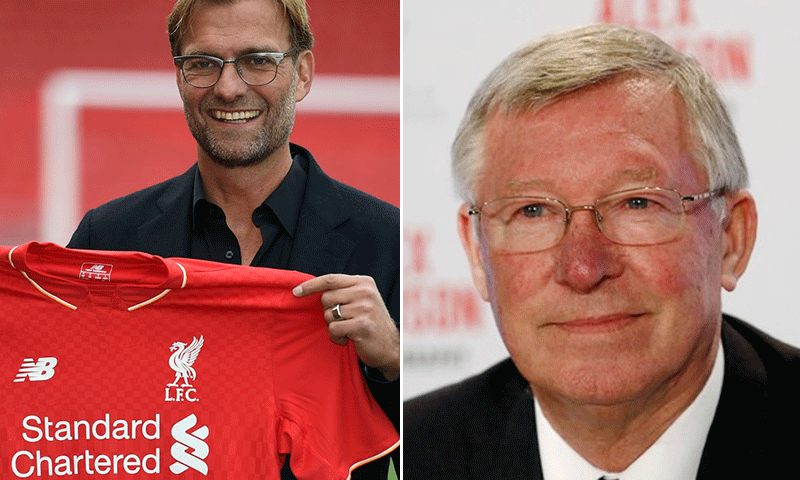
When Jurgen Klopp arrived at Liverpool, the football world stopped for a moment. The smile, the energy, the passion — it was all there. It felt like something big was about to happen at Anfield. The German manager, known for his charisma and emotional football, had stepped into one of the most historic clubs in the world, and everyone was watching to see what would come next.
Even before he managed his first game, people across Europe had already begun to speak about him. Some were excited, some were nervous, and others were simply curious. Among those who spoke up were some of the biggest names in football history — Sir Alex Ferguson, Peter Schmeichel, and Borussia Dortmund CEO Hans-Joachim Watzke. Each had their own opinion about Klopp’s move to Liverpool, but one thing was clear: this was no ordinary appointment.
Hans-Joachim Watzke, the man who knew Klopp better than almost anyone in football, believed Liverpool had struck gold. He had seen Klopp transform Borussia Dortmund from a struggling club into one of the most feared teams in Europe. He had witnessed the rise of a coach who could make ordinary players believe they were unstoppable. “I am convinced he will write a similar success story like he did here with us,” Watzke told German newspaper Bild, his voice filled with pride and belief.
He had every reason to feel that way. Under Klopp, Dortmund had achieved what once seemed impossible. In 2011, they shocked everyone by winning the Bundesliga title, ending Bayern Munich’s dominance. And then, a year later, they did it again, playing with breathtaking speed, intensity, and passion. Klopp’s Dortmund played football that was not only effective but beautiful — full of life and heart. The famous “gegenpressing” — the art of winning the ball back immediately after losing it — became a football revolution across Europe.
And then came the Champions League dream. Dortmund’s 2013 run to the final was a fairytale. They defeated Real Madrid with Robert Lewandowski’s unforgettable four goals, and though they lost 2-1 to Bayern Munich at Wembley, Klopp’s team had captured the hearts of millions. It was football at its most emotional. After the match, Klopp hugged every player, smiled through the pain, and said words that defined him: “If you can’t win, don’t lose your smile.”
By the time he left Dortmund in May 2015, Klopp was not just a coach — he was a legend. He had built a family, not just a football team. The city of Dortmund cried when he said goodbye. So, when Liverpool came calling, it felt like destiny.
The club that once dominated Europe had been struggling for years to find its magic again. Liverpool needed someone who could bring belief, energy, and emotion back to Anfield. Klopp was exactly that man. He signed a contract until June 2018 and made it clear from day one that he was not there to be a star — he was there to build something real.
In his first press conference, wearing a black suit and his trademark smile, Klopp looked around at the journalists and said the words that would stay with fans forever: “I am the Normal One.” He promised to make Liverpool believers again. When asked how long it would take to win a trophy, he said confidently, “Give me four years and we will have won one.”
That statement caught the attention of many, including Peter Schmeichel, the legendary Manchester United goalkeeper. Schmeichel, known for his honest opinions, immediately warned Klopp that English football is not that simple. “First mistake..?? Others have made the same promise!
Schmeichel wasn’t being disrespectful — he was speaking from experience. He had played under Sir Alex Ferguson, the greatest manager in Premier League history, and he knew how hard it was to reach the top in England. Schmeichel had kept 129 clean sheets in 310 Premier League matches and won five league titles, three FA Cups, and the Champions League. He knew that success required more than just passion; it required patience, planning, and a bit of luck.
Still, even Schmeichel’s warning couldn’t hide the excitement surrounding Klopp. For the first time in years, Liverpool fans felt something special. The way Klopp spoke, the way he smiled, the way he hugged people — it all felt genuine. He wasn’t pretending. He wasn’t trying to impress. He was being himself, and that honesty connected with the people of Liverpool instantly.
Even Sir Alex Ferguson — a man who had spent decades trying to defeat Liverpool — couldn’t hide his admiration. Speaking to ESPN, the former Manchester United boss admitted that Klopp was exactly the kind of manager Liverpool needed. “He’s a strong personality, very strong, very stubborn, determined,” Ferguson said. “His performances and his career at Dortmund were a stellar rise to the top, and I think he’ll do very well.”
Then, with a little smile, Ferguson added, “I don’t like saying that, being Liverpool, because I’m worried about it, but no, he’ll do well.”
Those words carried weight. Coming from Sir Alex Ferguson, they were almost prophetic. He had spent his entire managerial career fighting Liverpool for dominance. For him to admit that Klopp could bring them back to glory was like acknowledging that a storm was coming — and that he could see it from afar.
In Germany, Watzke nodded in agreement. He knew Klopp better than anyone. He had seen him motivate players in ways no one else could. Klopp didn’t just manage — he inspired. He had a gift for making people believe. When Dortmund played under him, you could see it in their eyes: every player was ready to fight for him, every fan ready to sing until their voice broke.
At Liverpool, Watzke believed, the same would happen. The passion of the fans, the history of the club, the atmosphere of Anfield — it was the perfect match. Klopp, the man who loved emotion, had found a club that lived on emotion.
But Peter Schmeichel’s warning was also fair. The Premier League was a different world. It was faster, more physical, and more unpredictable than any other league in Europe. Many great managers had come and failed. Promises had been made and broken. The English game had humbled even the most confident of coaches.
Klopp, however, was not one to be scared. He had faced challenges before. He had turned a near-bankrupt Mainz team into Bundesliga contenders. He had lifted Dortmund from the bottom half of the table to the Champions League final. He believed in hard work, in emotion, in connection. He believed that if you make players feel like a family, they will fight for each other no matter what.
His first match in charge was against Tottenham Hotspur. It wasn’t a win, but it showed something different — a glimpse of what was to come. Liverpool pressed with energy, defended with heart, and fought for every ball. The result didn’t matter that day; what mattered was the feeling. For the first time in a long time, Liverpool fans saw a team playing with belief again.
Klopp’s journey had just begun, but even then, you could sense that something was building. The way he celebrated tackles, the way he hugged players after the match, the way he thanked the fans after every game — it all mattered. He brought emotion back to football.
Years later, those early predictions would prove true. Klopp would go on to lead Liverpool to glory — the Champions League, the Premier League, and more. But back in 2015, no one could be sure. All they had was faith, and a few voices of belief. Watzke believed. Ferguson believed. Even Schmeichel, deep down, respected what Klopp was trying to do.
In a football world full of money, pressure, and ego, Klopp represented something pure — the love of the game, the belief in people, the joy of fighting together for something bigger than yourself.
Ferguson, the man who had conquered England, saw that spark and knew it was dangerous. He could tell that Klopp had the same fire he once had — the ability to turn emotion into strength, to make a club dream again. “I don’t like saying it, being Liverpool,” he said, “but he’ll do well.”
Those words echoed through football like a warning from a wise old general. And history would prove him right.
Jurgen Klopp’s story at Liverpool began with hope, doubt, and endless emotion. Some believed he would succeed. Others thought he would fail. But from his first smile at the press conference to his first roar on the touchline, one thing was certain: he was exactly where he was meant to be.
The sleeping giant of English football had finally found a man brave enough to wake it up. And though Peter Schmeichel warned it would not be easy, Klopp was never looking for easy. He was looking for meaning, for passion, for fight.
He once said, “If you want to be successful, you need to feel pain.” That sentence would define his entire Liverpool journey.
Watzke’s words from Germany, Ferguson’s cautious admiration from Manchester, and Schmeichel’s tough reminder from his United days all came together to paint the picture of what Klopp’s arrival meant. It wasn’t just a new chapter for Liverpool — it was the start of a revolution.
And as the fans filled Anfield for his first home match, singing “You’ll Never Walk Alone” louder than ever, Klopp stood on the touchline with his hands in his pockets and that famous grin on his face. He looked around, listened to the voices, and nodded. He knew the road would be hard. He knew there would be pain. But he also knew that together, Liverpool could rise again.He wasn’t there to make promises. He was there to make believers.And slowly, step by step, that’s exactly what he did

